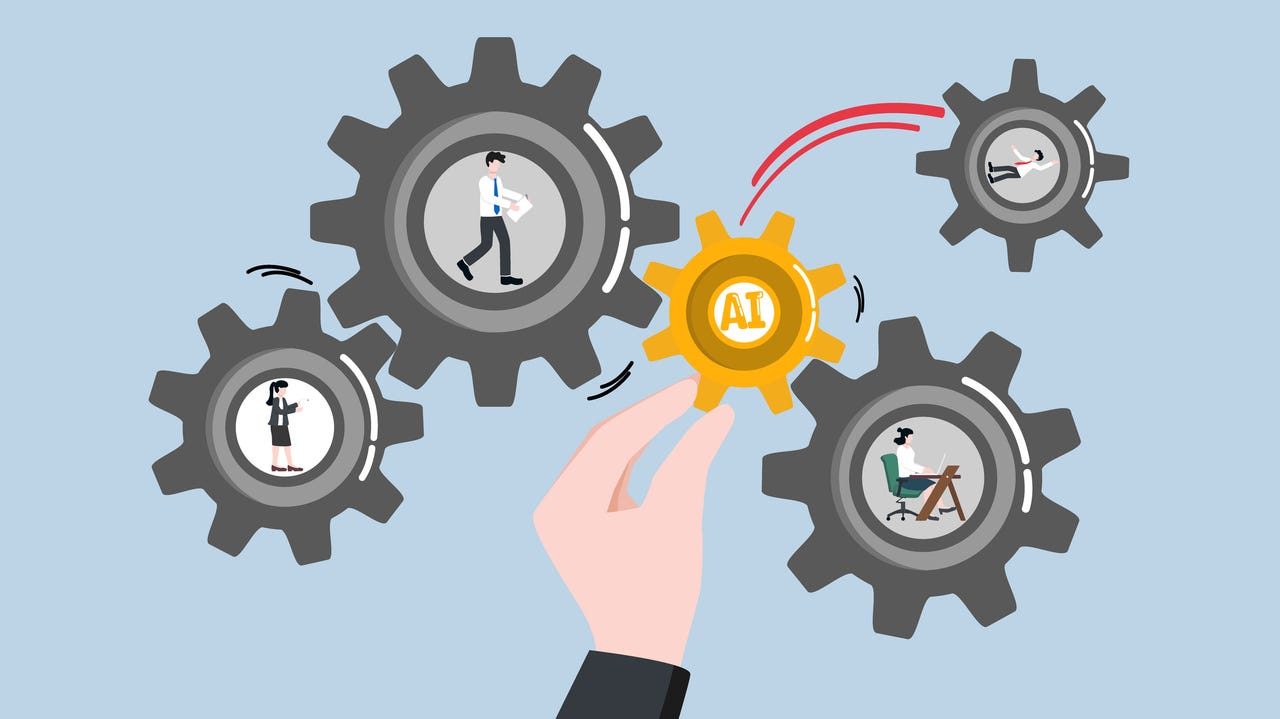Mid-career professionals, watch out. You're the most exposed to AI


The continued rise of generative AI has the potential to transform how operational activities in the workplace are completed. However, some sectors and careers are more susceptible than others, and a new report sheds light on the biggest targets.
Indeed Hiring Lab has published its AI at Work Report, which uses its prior report and Bureau of Labor Statistics data to highlight the groups and industries that are more susceptible to AI-led change than others.
Also: Worried about AI gobbling up your job? Start doing these 3 things now
The report labels exposure to generative AI as "high" if generative AI is "good" or "excellent" at performing 80% or more of skills in the field.
The exposure is "moderate" when generative AI is "good" or "excellent" at performing between 50% and 80% of skills, and "low" when generative AI can perform less than half of skills in a "good" or "excellent" manner.
The study suggests younger generations face the least amount of exposure. Only 5.6% of workers between the ages of 16 and 24 have the highest potential exposure to generative AI, while 38.4% of workers in that age group have the lowest potential exposure.
The report says these younger workers are susceptible to mostly low exposure because of the roles they fulfill. Many professionals in this age group work in roles that don't require advanced skills or rely on skills that can be learned quickly.
For example, the report points out that 16.3% of workers in this younger age group work in food preparation or service jobs, sectors where generative AI assistance would not be very beneficial or valuable.
Also: As developers learn the ins and outs of generative AI, non-developers will follow
However, as these professionals become older, they move into positions and acquire skills where generative AI can excel.
For example, management positions are generally offered after an individual has gained several years of experience in a field or role, with one in eight workers between the ages of 25 to 54 working in management.
The report says management iis one field where generative AI excels, with the technology able to perform 67.9% of the skills required in a "good" or "excellent" manner.
Older professionals often choose to further their education, making them eligible for roles that are highly exposed to AI, such as "Business & Finance" and "Mathematics & Computers".
As a result, mid-career professionals between the ages of 25 and 54 have the highest potential exposure to AI, with 13.4% of professionals in that age group prone to high AI exposure, 58.4% having moderate exposure, and 28.2% classified as low-exposure individuals.
Also: Google's AI search won't be ad-free much longer
The 55-plus age group boasts the same protection as the youngest age group of working professionals. Many of the roles that older workers fulfill, such as driving, cleaning, and sanitation, depend on hands-on or social interactions, which are tasks that generative AI can't perform well.
Only 11.5% of workers in this latter category are highly exposed to generative AI, with 59.4% having moderate exposure, and 29.1% having low exposure.